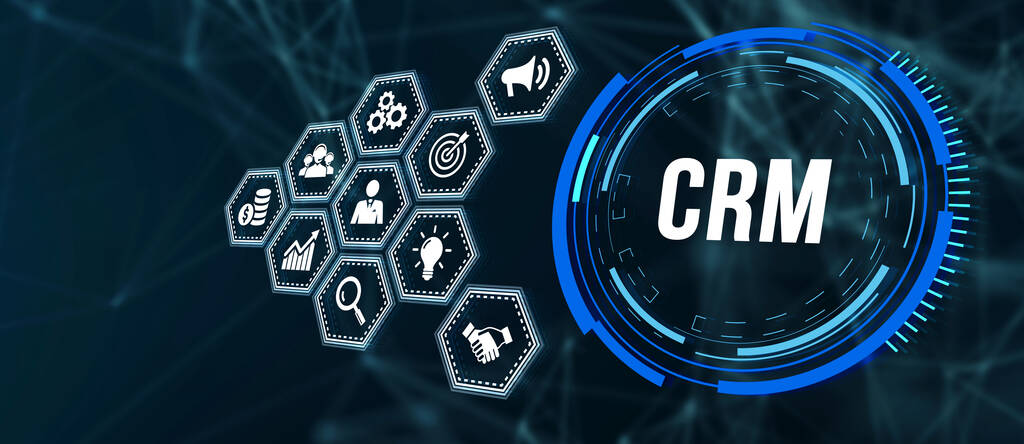In today’s rapidly evolving business landscape, Customer Relationship Management (CRM) systems have become indispensable tools for managing and enhancing interactions with customers. Traditionally focused on organising customer information, CRM is undergoing a transformative shift with the integration of Artificial Intelligence (AI) and Machine Learning (ML). These cutting-edge technologies are not just revolutionising the capabilities of CRM systems but are also reshaping the dynamics of customer engagement in profound ways.
The Evolution of CRM: From Manual to AI-Driven
CRM systems have come a long way, progressing from simple manual record-keeping to advanced platforms infused with AI technology. At first, their purpose was to store customer information and handle sales data. Nevertheless, these systems fell short in terms of their ability to extract valuable knowledge from the data they stored. The introduction of AI and machine learning changed the game completely, revolutionising CRM into a dynamic instrument capable of engaging in smart interactions, rather than just being a static database.
CRM systems that have been integrated with artificial intelligence can now efficiently analyse massive amounts of information, providing anticipatory analyses and customising customer engagements. This advancement marks a shift from a transaction-based to a relationship-centred strategy, where putting effort into comprehending and satisfying individual customer preferences emerges as the main focus.
Deepening Customer Understanding with AI in CRM
AI has brought a plethora of functionalities into CRM, revolutionising how businesses interact with their customers. Personalisation is at the forefront, with AI algorithms analysing customer data to provide tailored product recommendations and services. AI-powered chatbots and virtual assistants, capable of mimicking human interactions, are transforming customer service paradigms. These bots efficiently handle inquiries, offer support, and even perform sales functions, significantly enhancing customer experience and efficiency. In addition, technologies for analysing sentiment enable businesses to gain a more comprehensive insight into the sentiments, requirements, and preferences of their customers through the interpretation of their feedback across multiple platforms.
Predictive Powers of Machine Learning in CRM
CRM’s capabilities are enhanced through the use of Machine Learning, which allows for the implementation of predictive analytics. ML algorithms analyse past data to detect patterns and make predictions about future customer behaviours, potential churn risks, and anticipated needs. These abilities provide great value to businesses as they strategically plan marketing efforts, optimise customer engagement, and enhance their retention strategies. By actively addressing the needs of customers, businesses can build resilient and long-lasting relationships.
Leveraging Data Analytics and Business Intelligence
The integration of AI and ML into CRM systems has revolutionised the world of data analysis and business intelligence. Now, businesses have the power to decode intricate customer data and convert it into valuable insights that drive action. This newfound capacity allows for precise market segmentation, personalised marketing initiatives, and informed strategic choices rooted in reliable data-driven knowledge. In this age where data reigns supreme, AI and ML have equipped CRM systems with the remarkable ability to transform data into a valuable strategic resource.
Navigating Challenges and Ethical Considerations
The presence of AI and ML in CRM brings about considerable advantages, but simultaneously gives rise to a range of obstacles and moral concerns. The protection of customer data becomes imperative, necessitating the implementation of strong safeguards to ensure data privacy and security. The efficacy and accuracy of ML algorithms heavily rely on the quality of the available data, posing complications when confronted with limited or inferior data.
Careful management is crucial when it comes to the ethical implications of utilising AI. This includes addressing biases that may arise and being mindful of how automated decision-making can impact customer relationships.
The Future of CRM: AI and ML at the Helm
The incorporation of AI and ML into CRM has brought about a revolutionary change surpassing a simple technological enhancement. It signifies a deep-rooted transformation in businesses’ comprehension, engagement, and estimation of their customers. With the perpetual progress of AI and ML technologies, their significance in CRM will magnify, proffering highly advanced mechanisms to augment customer relationships.
These technologies hold the key to revolutionising CRM by enabling the creation of deeper, tailor-made, value-centric engagements with customers.

In Summary
AI and Machine Learning have revolutionised the landscape of CRM development, demonstrating the transformative power of technology in reshaping fundamental elements of business operations. Through their ability to convert CRM systems into sophisticated platforms that deliver personalised experiences and predictive insights, AI and ML are raising the bar for customer engagement and business intelligence within the realm of CRM development.
The constant advancement of these technologies is set to further enhance CRM development and revolutionise the overall dynamics of customer relationships, marking the dawn of a fresh era in business-customer engagement.
